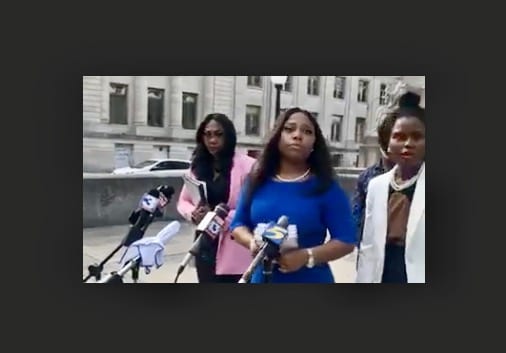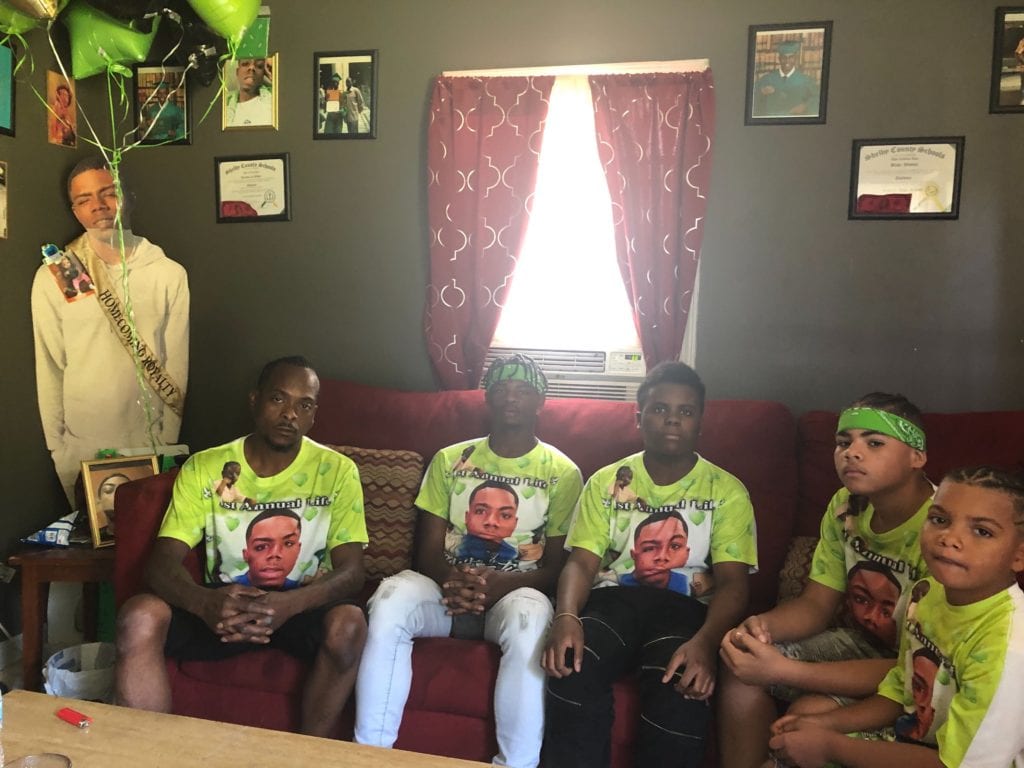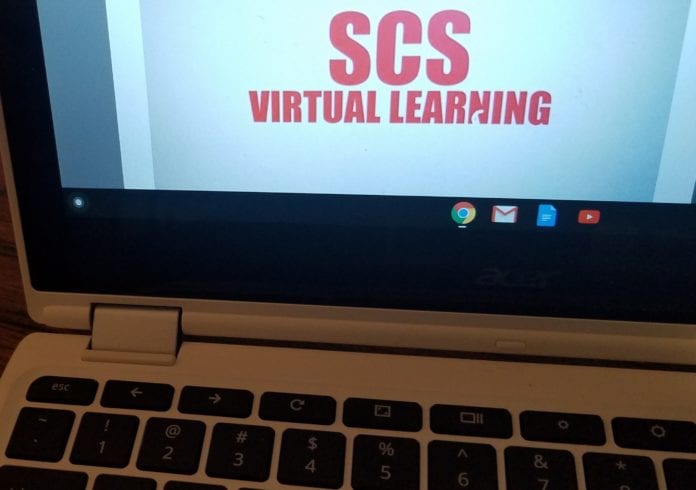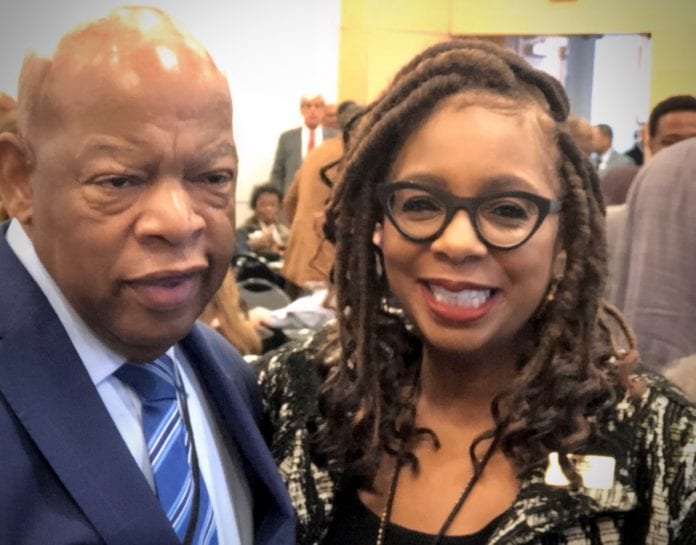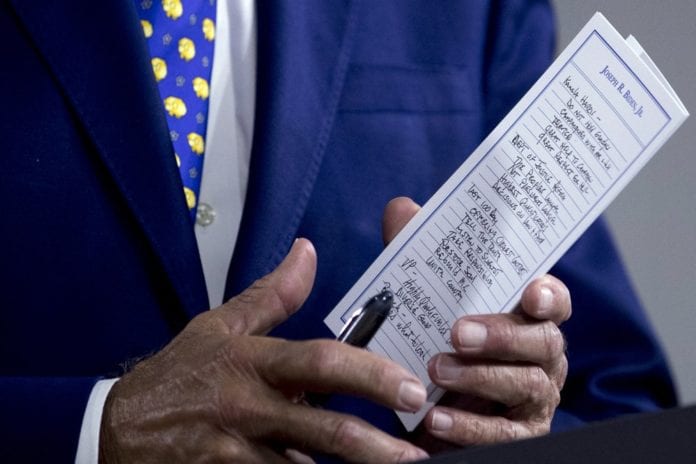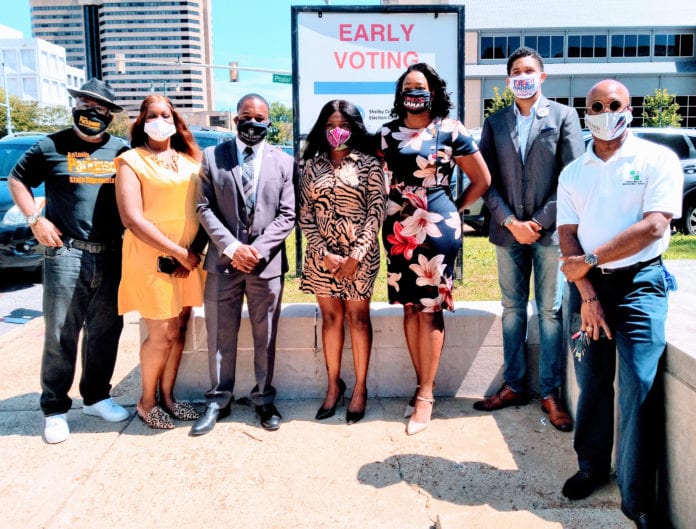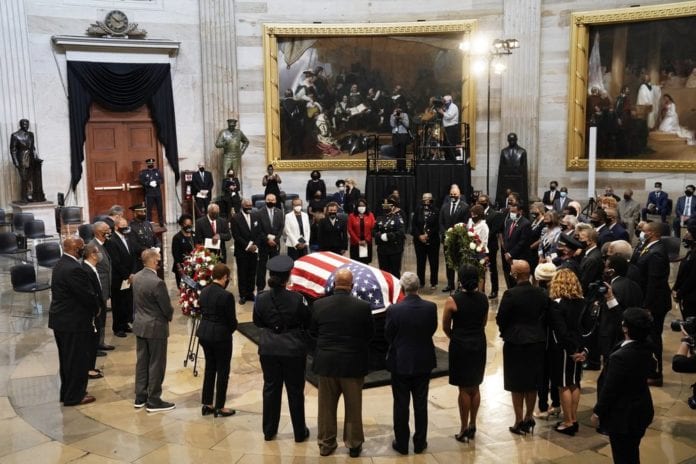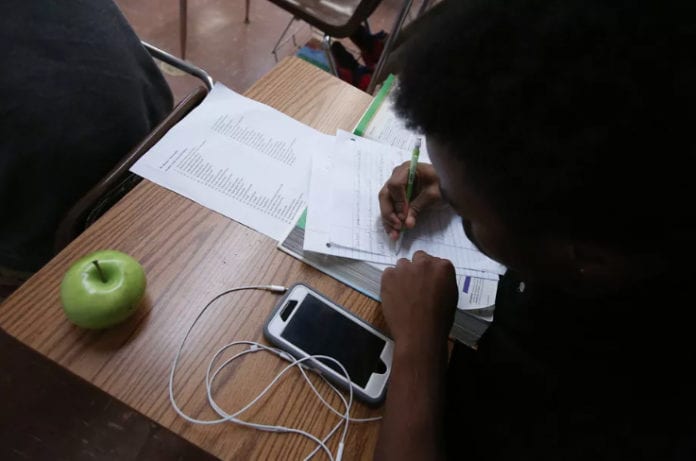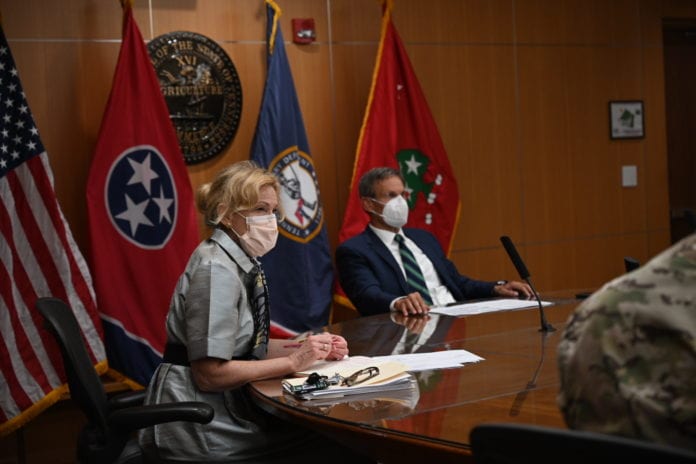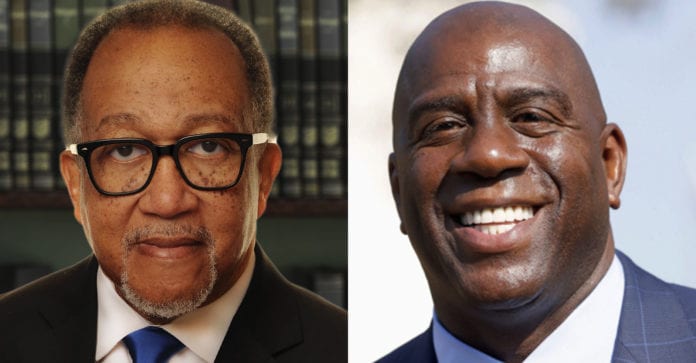UPDATED —
Two years after being elected to represent District 33, state Sen. Katrina Robinson, 39, faces federal charges of theft and embezzlement involving government programs and wire fraud.
At a press conference held in front of the D’Army Bailey Courthouse on Wednesday afternoon after the charges were detailed, Robinson asked family, friends and supporters to stick with her through the legal process.
“It is believed that if I were not in the position that I am in, if I did not champion the voices, views and faces that I represent, that I would not be in this moment right now,” she said.
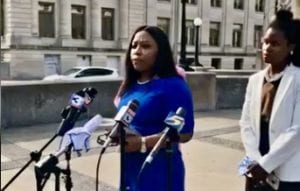
“I am committed to continue to serve with the same integrity, the same passion that I have demonstrated since I was elected to this office.”
Robinson, who is executive director of The Healthcare Institute (THI), a provider of educational and training programs for jobs in the healthcare field, said she remained equally as committed to continuing to provide career pathways in the health care industry en route to bridging the healthcare gap.
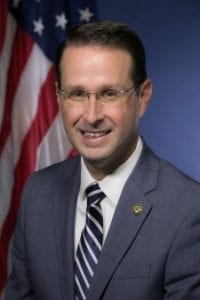
D. Michael Dunavant, U.S. Attorney for the Western District of Tennessee, made the charges public earlier Wednesday.
“Protection of the United States Treasury and federal grant programs against theft, fraud, waste and abuse is a top priority of this office and the Department of Justice,” Dunavant said.
According to the unsealed criminal complaint, during the period of 2015-19 THI received over $2.2 million in federal grants from the Health Resources and Services Administration (HRSA), an agency of the U.S. Department of Health and Human Services.
The complaint alleges that during the 2015-19 time frame Robinson stole more than $600,000 from THI, paying herself more than what was allowed under the terms of the HRSA grant. Also alleged is that Robinson used THI funds for payments and purchases benefiting herself and immediate family members.
Alleged payments and purchases include:
* A vehicle for her daughter;
* Clothing, accessories and hair and beauty products;
* Expenses related to her wedding and honeymoon, and later, legal fees for her divorce;
* Payments on her personal debts, including credit cards, store charge cards,
student loans, and other personal loans;
* Travel and entertainment for herself and her family;
* Improvements to her personal residence;
* Expenses related to a body aesthetics business she owned;
* A snow cone business operated by her children, and
* An event for her State Senate campaign.
If convicted, Robinson faces a possible sentence of up to 20 years in federal prison, three years supervised release, and a $250,000 fine. There is no parole in the federal system. The case will be presented to a federal grand jury at a later date to consider an indictment.
This case was investigated by the Federal Bureau of Investigation (FBI) and the U.S. Department of Health and Human Services – Office of the Inspector General (HHS-OIG).
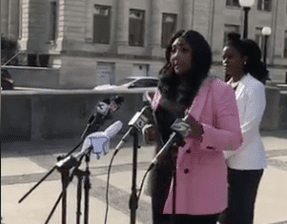
Attorneys Janika White and Kamilah Turner represent Robinson, who did not field questions after the press conference.
White stressed that her client had not been indicted and had been cooperative with investigators. She said one of the statues used to bring the complaint was deemed broad and overused by many legal observers.
“Sen. Robinson has a story to tell and she is eager to tell that story. We believe that once the facts come out and her story is told, she will be vindicated.”

The investigation, said White, unfolded amid the pandemic and that during that time Robinson had been active as a registered nurse “serving on the front line” in New York City.
“She has dedicated her life to service. She has sacrificed to serve,” said White.
“Remember to keep her in your thoughts and prayers during this trying time. She has been here to fill a need and she has been filling that need.”
Learning of the charges, the Senate Democratic Caucus issued this statement: “It’s clear that Sen. Robinson’s work in the state legislature on behalf of her constituents is not in question here today. Just like every other American, Sen. Robinson deserves the presumption of innocence and due process under the law. Her case should be resolved by a court of law, not by the court of public opinion.”
State Rep. G.A. Hardaway, chairman of the Tennessee Caucus of Black Legislators, said there would be no statement concerning the matter at this time.
State Rep. Barbara Cooper, the oldest member of the Tennessee General Assembly, said: “That is very unfortunate, but judgment should be reserved for court when jurors will hear all the evidence in the case. Everyone deserves their day in court.”


